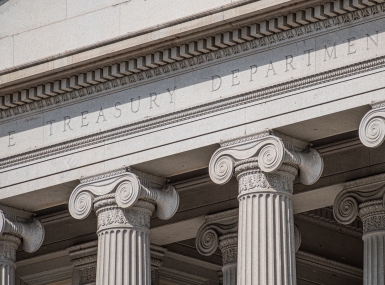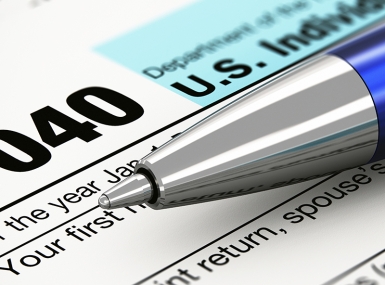Remote sales tax bills reintroduced
Bipartisan coalitions have introduced remote sales tax bills in the House and Senate
Bipartisan coalitions in both the Senate and the House reintroduced two remote sales tax bills on April 27: S. 976, the Marketplace Fairness Act (MFA) of 2017, and H.R. 2193, the Remote Transactions Parity Act (RTPA) of 2017. Both bills were introduced during the 114th Congress, and MFA was passed by the Senate in the 113th Congress.
NACo supports both bills, which would allow states and counties to enforce existing sales tax laws and collect taxes on remote purchases. In 2016, the top three U.S. internet retailers — Amazon.com, Wal-Mart Stores Inc. and Apple Inc. — had sales of $65.5 billion. Total U.S. e-commerce sales for 2016 were tagged at $322.17 billion. In 2000, U.S. e-commerce sales weighed in at $27.1 billion.
Legislation to allow the collection of sales tax on remote sales has been a longstanding priority for NACo. The current inability of states and local governments to collect existing sales taxes is the result of two, decades-old Supreme Court decisions, National Bellas Hess v. Department of Revenue (1967) and Quill Corp. v. North Dakota (1992).
Even though the Quill decision, which states that a business must have a physical presence in a state before the state can require it to collect sales taxes, upheld Bellas Hess, the court also held that Congress ultimately has the authority to regulate interstate commerce and could overrule the decision through legislation.
MFA and RTPA would not automatically give states and local governments the authority to collect existing sales taxes. To exercise this authority, states and local governments would need to simplify sales and use tax administration through one of two options: adoption of the Streamlined Sales and Use Tax Agreement, where participating states have already implemented simplification measures, or adoption of measures to meet minimum simplification requirements detailed in the bill.
MFA will be referred to the Senate Finance Committee, while RTPA will go to the House Judiciary Committee, where it has faced opposition in the past from Chairman Bob Goodlatte (R-Va.). There is not a clear timeline for action in either chamber.
Meanwhile, other House members are working on legislation that would codify the Quill decision, effectively requiring that sellers have a physical presence in a state for states and counties to be able to enforce sales tax collection on online purchases.
In the absence of federal legislative action, multiple states have passed their own bills forcing the collection of remote sales taxes. These bills are facing legal action, and some court challenges could make their way to the Supreme Court as early as 2018. This would give the Supreme Court the opportunity to review the Quill decision and determine if it is still relevant for today’s marketplace.
NACo and other state and local government organizations released a joint statement April 28 commending the introduction of MFA and RTPA and urging their passage, noting: “Without the ability to enforce existing sales and use taxes on remote purchases, states and local governments lose billions each year, which could be used to reduce other taxes and invest in infrastructure, education, public safety and other services that improve residents’ quality of life.”
Attachments
Related News

White House OMB releases final revisions federal Uniform Guidance (2 CFR Part 200)
The White House OMB released final revisions to the federal Uniform Guidance that outline compliance and reporting requirements for federal financial assistance.

Treasury Department releases new obligation guidance for the ARPA State and Local Fiscal Recovery Fund
On March 29, the U.S. Department of Treasury released new FAQs related to their Obligation Interim Final Rule for the ARPA Recovery Fund.

Internal Revenue Service pilots free direct tax filing program in 12 states
On March 12, the IRS launched Direct File, a new pilot through which eligible taxpayers in 12 states can file their taxes for free using a simplified tool.
